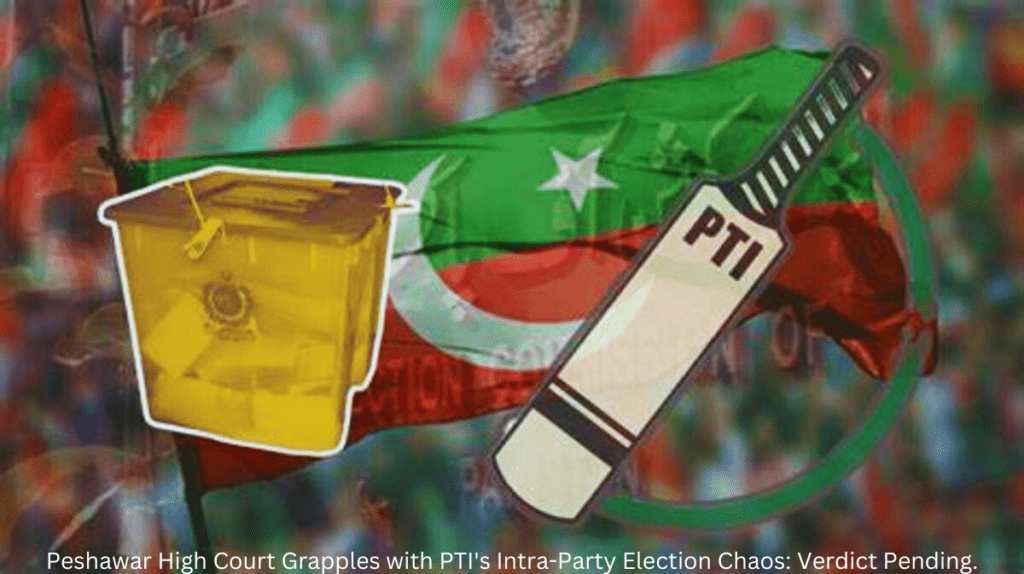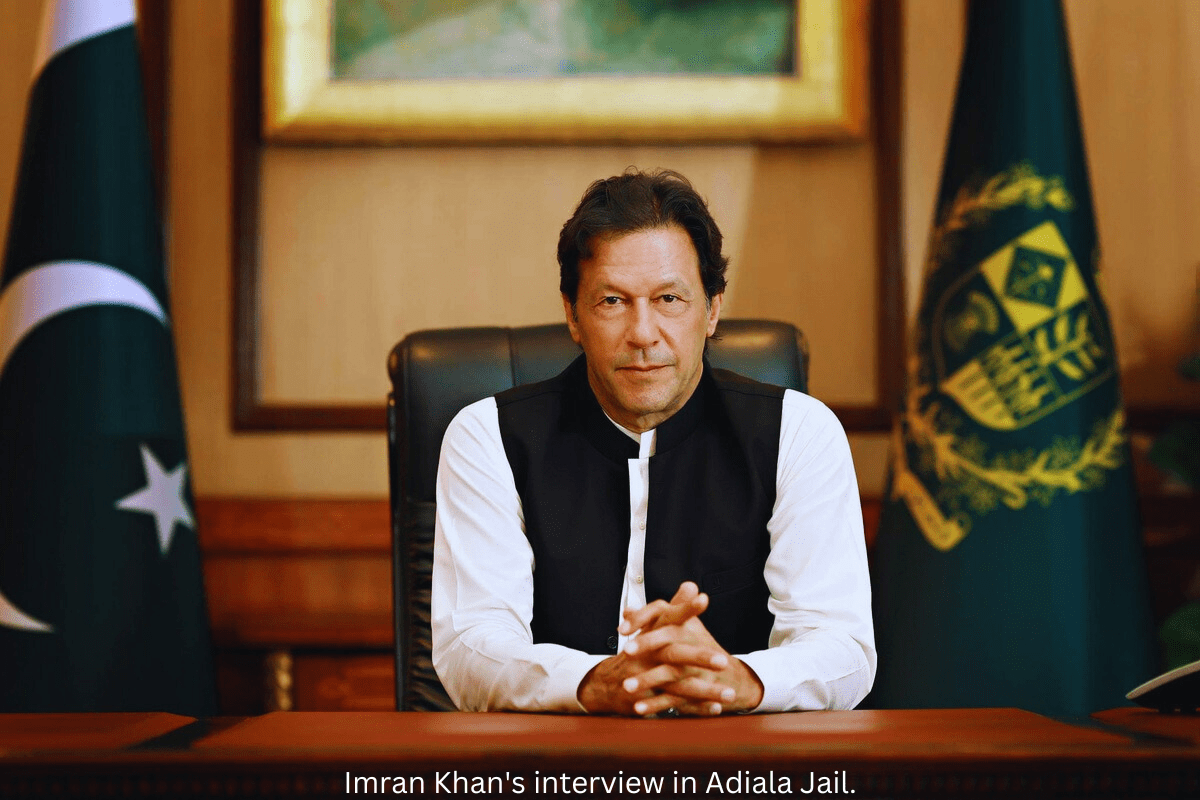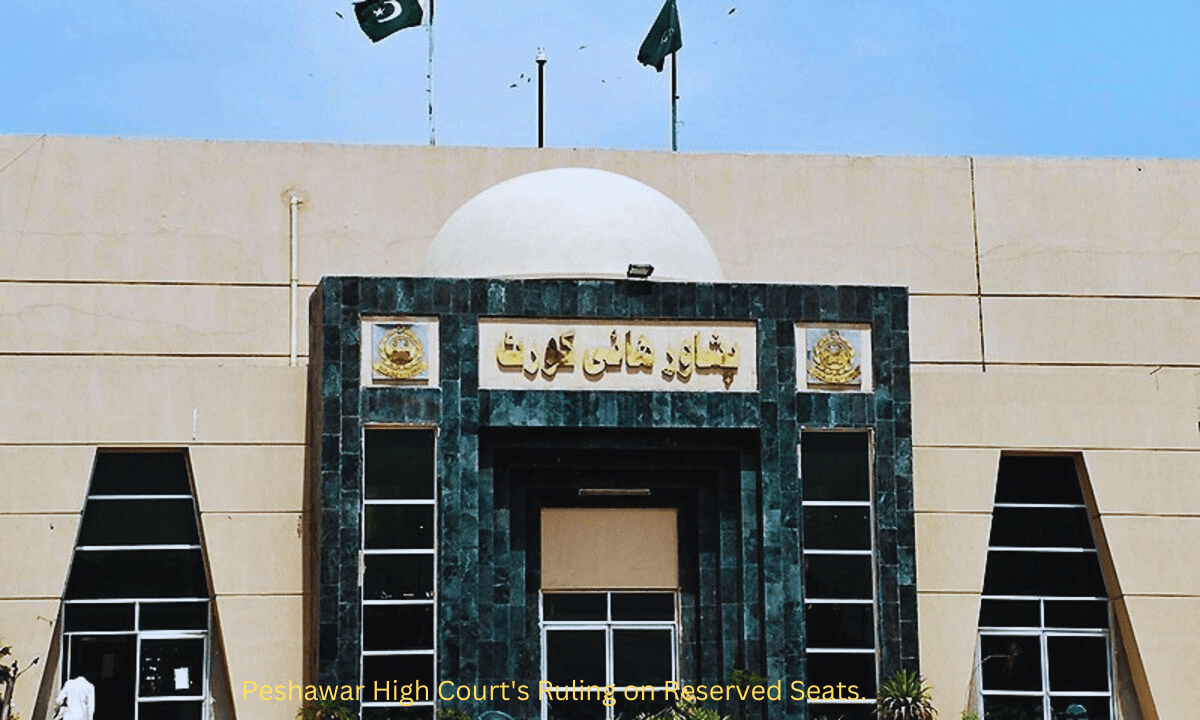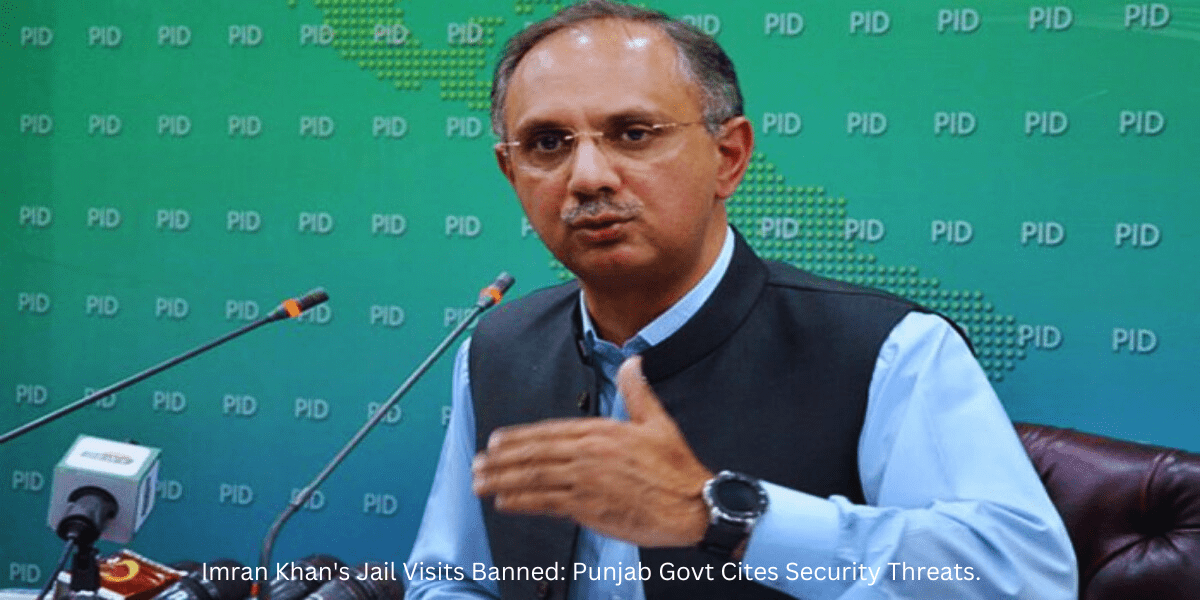
The Peshawar High Court’s recent hearing on PTI’s intra-party elections has unveiled a complex legal battleground. From jurisdiction dilemmas to challenges against commitment and electoral intricacies, the court is navigating through a nuanced landscape. The pending verdict reflects the gravity of the issues raised, leaving a palpable anticipation for the resolution of this legal quandary.
Peshawar High Court’s Scrutiny of PTI’s Intra-Party Elections: Unraveling Legal Complexities
The recent public hearing at the Peshawar High Court (PHC) has brought to light a series of intricate legal challenges surrounding the intra-party elections of the Pakistan Tehreek-e-Insaf (PTI). Advocate Naveed Akhtar, representing Jehangir from Charsadda, emphasized critical points that have fueled the legal discourse
Contradictions in Statements and Concerns Raised
Advocate Naveed Akhtar highlighted a significant contradiction—despite earlier statements by the PTI, the matter is now scheduled for a hearing at the Supreme Court. This revelation raised concerns about the party’s commitment, a sentiment echoed by Justice Anwar. Barrister Zafar, however, assured the court otherwise. Meanwhile, Advocate Qazi Jawwad, representing Yousaf Ali, underscored the denial of participation in the intra-party polls, hindering his chances in upcoming general elections.
Jurisdictional Debates: PHC’s Role and PTI’s Approach
Justice Anwar expressed concerns about the PTI’s commitment, prompting discussions on PHC’s jurisdiction. Barrister Zafar’s assurance clashed with the argument presented by Advocate Qazi Jawwad, who emphasized that Yousaf Ali’s denial of participation in intra-party polls fell within PHC’s provincial jurisdiction. The debate extended to whether the PTI should have approached all high courts, adding layers of complexity
Legal Standpoint: Elections Act 2017 and Authority of ECP
Tariq Afridi, representing Shah Fahad, challenged PHC’s jurisdiction citing Article 199 of the Constitution. He argued that under the Elections Act 2017, political parties, including PTI, were not obligated to retain the same electoral symbol, emphasizing the authority of the Election Commission of Pakistan (ECP) in such matters.
Certification and Constitutional Adherence
Mian Azizuddin, counsel for petitioners Raja Tariq and Noureen Farooq, drew attention to the absence of an authorized certificate submitted to the ECP after PTI’s intra-party polls. Advocate Naveed Akhtar stressed the importance of adhering to the party’s constitution and safeguarding voters’ rights throughout the legal proceedings
Verdict and Conclusion
As the hearing concluded, the court reserved its verdict, reflecting the complexity of the legal arguments presented. The intricacies of jurisdiction, commitment, and adherence to electoral regulations have created a legal quandary, leaving the resolution eagerly awaited.
Frequently Asked Questions (FAQ’s)
Q: What is the main issue discussed in the Peshawar High Court regarding PTI’s intra-party polls?
A: The main concerns revolve around jurisdiction, commitment of PTI, and electoral intricacies, including the denial of participation in intra-party polls.
Why is the Supreme Court mentioned in the context of PTI’s intra-party elections?
A: Contrary to earlier statements by PTI, the matter is scheduled for a hearing at the Supreme Court, adding complexity to the legal proceedings.
Q: What role does the Elections Act 2017 play in the Peshawar High Court hearing?
A: Tariq Afridi argued that political parties, including PTI, are not obligated to retain the same electoral symbol under the Elections Act 2017.




Leave a Reply